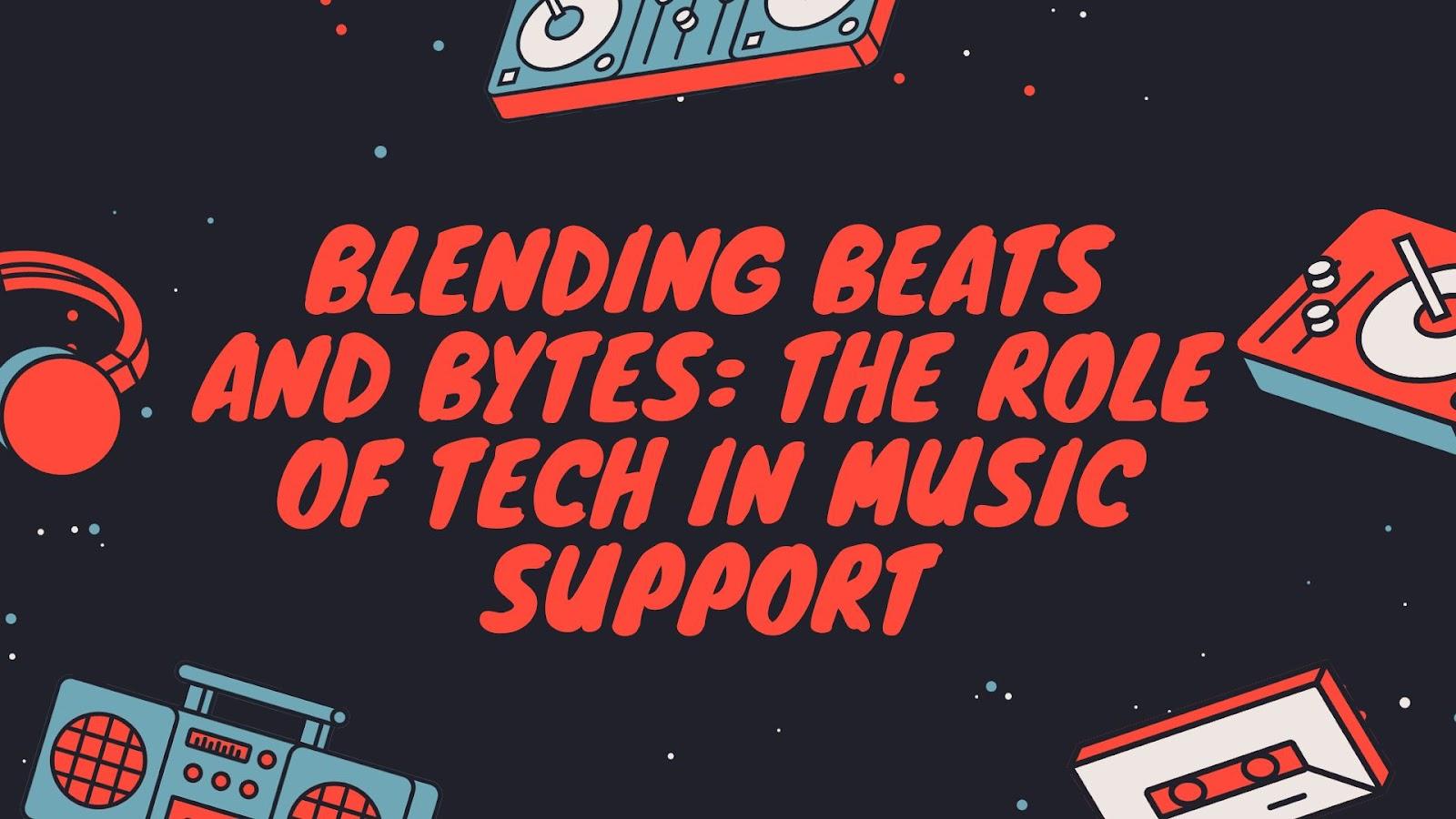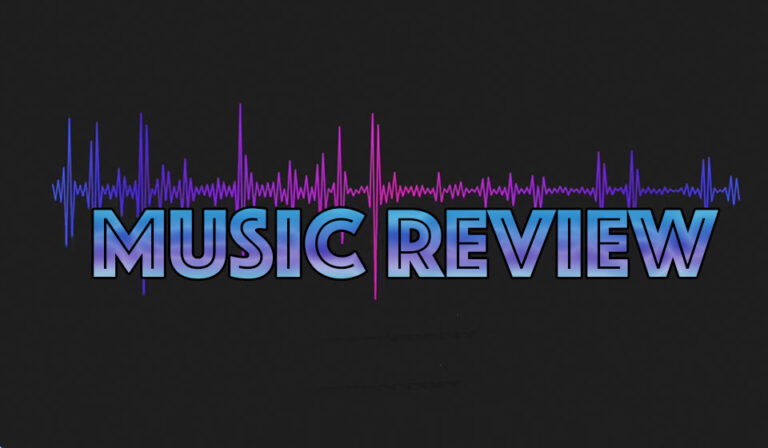Blending Beats and Bytes: The Role of Tech in Music Support

From a young age, we learn about Thomas Edison’s experiments with carved, wavy cylinders. iPods are a byproduct of discoveries related to sound and music. There have been 24 astonishing and crucial developments in recorded music
Over the years, the relationship between music and computer science has changed dramatically. People have revamped the way music and technology are played, used, and experienced. While these innovations were groundbreaking, the digital age ushered in a new era. Music is not just about listening but about accessibility and convenience.
This has led to the rise and popularity of streaming services, as well as their undeniable influence on the music industry.
The Impact of Streaming Services on the Music Industry
Streaming services are equipped with large libraries and user-friendly interfaces. Both of these aspects have changed the way people experience the music they love. A staggering $8.5 billion a year is now earned by the record label industry due to streaming.
The top players in music streaming have amassed over 400 million paid subscribers globally. Spotify, Apple Music, and YouTube Music are all major players in the music industry.
Paid subscriptions aren’t the only method for gaining followers. These platforms offer ad-supported free tiers. It serves as an entry point for price-sensitive users. At some point, they’ll get used to living life while streaming music. That’s when they might start considering paid subscriptions.
Streaming has also impacted contact center solutions, enabling them to customize on-hold music. Contact center integrations for Microsoft Teams offers this feature. Clients on hold can listen to the most popular music of the season. That way, they’ll view companies as trendy instead of listening to the usual elevator music.
However, the growth of streaming has also disrupted traditional album sales. It has led to a sharp decline in physical CDs and downloads. Streaming generates substantial revenues at scale. But lower per-stream payouts have caused concerns about fair compensation for artists. Major labels and popular acts profit most from the streaming model. But smaller indie musicians often struggle to stay afloat since they don’t earn as much from streaming platforms.
Despite these concerns, streaming remains the dominant form of music consumption. User-centric payment models and blockchain solutions are emerging.
Streaming technology and music tech continue to change. But there are still miles to go before finding an optimal balance between access and sustainability.
Streaming platforms also continue to dominate online. But there’s another digital influence that’s reshaping the music landscape: social media. The next section will delve into how platforms like TikTok and Instagram are influencing music trends and artist popularity.
The Role of Social Media in Shaping Music Trends
Social media has become an important part of people’s daily lives. It changed the way individuals connect and communicate. It has also influenced how they find and consume information.
In the music industry, social media plays a significant role in shaping trends. The following figures acknowledge the power of online channels to engage fans:
- Artists and musicians are more accessible on social media like Twitter and Instagram
- Record studios and labels can post teasers and news of upcoming releases
- Music marketers or marketing teams can interact with fans
The industry recognized that building a strong online presence could promote music. While streaming has made it easier for established artists to reach fans, it has made it more challenging for indie musicians to earn a significant income. But social media equalizes the playing field for both of them.
With the right marketing tactic, indie artists can reach a big audience. The impact and role of social media in the music industry is massive. It has transformed and will keep transforming what people discover and listen to.
Looking at future possibilities, it’s clear that technology will continue to play a pivotal role. It will keep shaping the future of “Music and Tech Integration”.
The Digitalization of Music Production
Digital tools and software have revolutionized the “Music Production” landscape. Innovations like Pro Tools were introduced in 1991. They have made studio-level features accessible to a broader audience. Digital Audio Workstations, which allow both amateur and professional artists to craft high-quality music, have further democratized the production process. Ableton and Logic Pro are prime examples of said programs.
With the availability of production-friendly devices, music can now be created and engineered on the go. Laptops, tablets, and smartphones are all strong enough to edit and create music. Mobile music production apps from Beatmaker and FL Studio provide abundant creative flexibility. Online tools have made artist collaborations borderless, enabling remote music production.
The influx of music tech software and mobile apps has spurred a surge of bedroom producers. However concerns around originality and over-reliance on loops, samples, and auto-tune persist. Moreover, skills like instrumentation and music theory risk being sidelined. Finding the right balance is key.
The music industry is in a state of dynamic evolution thanks to three things:
- The amalgamation of advanced production tools
- The omnipresence of streaming services
- The influential power of social media
Ultimately, tech innovations have made creating professional-sounding music cheaper and easier. But music production is both a science and an art. There has to be some semblance of humanity in songwriting and performance.
Frequently Asked Questions:
Q: How is Artificial Intelligence changing music composition and production?
A: AI is now capable of doing the following:
- Composing music
- Assisting in songwriting
- Mastering tracks
While some argue it might replace human creativity, others believe it’s a tool that can enhance the creative process. Either way, AI pop idols and music tools have become prevalent in the modern music scene.
Q: What are the potential risks of relying heavily on technology in music?
A: Over-reliance on technology can lead to:
- Loss of originality
- Data breaches
- Copyright infringement
It’s essential to strike a balance between using technology and maintaining artistic authenticity.
Q: How are emerging technologies like blockchain influencing the music industry?
A: Blockchain offers solutions for:
- Transparent royalty distribution
- Combating piracy
- Ensuring artists get fair compensation for their work
Takeaway
The influence of technology on the music industry is clear and undeniable. From the growth of music production tools to the rising popularity of streaming services and social media, technology’s impact is evident.
Tech advancements have empowered artists and changed the musical scene. However the importance of adapting to these changes while preserving the soul of music remains essential. There has to be a combination of technological innovations with human creativity. Only with this combination can artists unlock new possibilities for music’s future.


